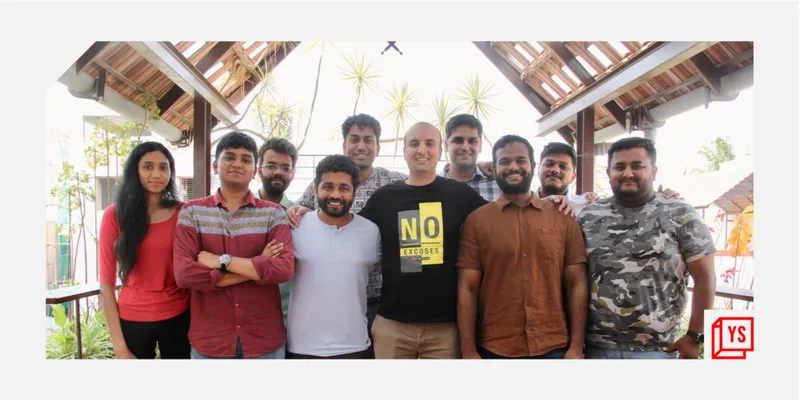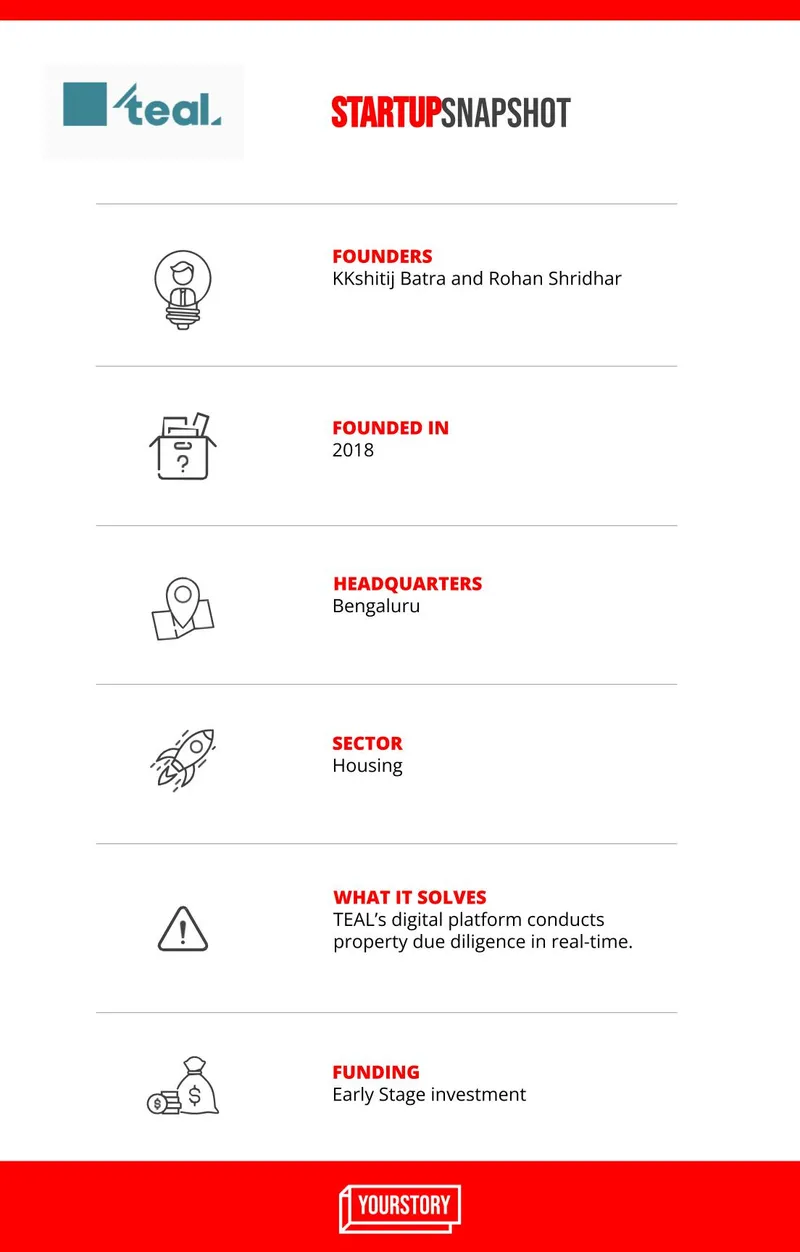Omidyar and Info Edge backed TEAL India is leveraging AI, big data to clean the real estate sector
TEAL India recently raised $2 million in funding led by Omidyar Network India, with participation from its existing investor Info Edge.
When Kshitij Batra, an economist, was tracking property values in Indian cities for a project with the National Housing Bank and the Ministry of Finance in 2015, he realised there was a gap between what exists and what could exist in the real estate market.
Anyone who has ever dealt with real estate in India is aware of how opaque the sector is. From complicated laws and regulations to lack of information related to titles, disputes, unauthorised construction as well as the actual transaction values of properties, property due diligence is a herculean task.
Kshitij turned to big data and artificial intelligence (AI) to solve some of these pain points.
In 2018, he teamed up with his friend Rohan Shridhar, a lawyer, to launch Terra Economics and Analytics Lab (TEAL) in Bengaluru.
The startup focusses on solving the information asymmetry problem in land and housing using big data and machine learning.
recently raised Pre-Series A round of $2 million led by Omidyar Network India, with participation from its existing investor Info Edge.

The team at TEAL India
What does TEAL do?
TEAL's core product is a digital, AI-driven solution for property due diligence in India. With more than 50 million addresses covered across 52 cities and 12 states, TEAL says it has the largest repository of real estate data in the country.
“We apply cutting-edge machine learning algorithms to translate, clean, and standardise property records. Finding critical information around title, dispute and regulatory compliances of an individual house or plot has traditionally involved manually gathering paper records from multiple offices, using intermediaries to vet and arrange the information, and lawyers to interpret it. TEAL's solution provides clean property-level data via APIs (application programming interface) in real-time,” Kshitij tells YourStory.
TEAL’s existing clients include some of India's largest mortgage lenders, such as HDFC, Kotak, and HomeFirst, and a host of retail users.
“At TEAL we have built a digital platform to conduct property due diligence in real-time for banks, housing finance companies, individual buyers and sellers, lawyers, brokers, builders and real estate investors. We collate land and property-related records from more than 900 different government agencies, courts, tribunals and other public data sources,” explains Kshitij.

Setting the record straight
Real estate remains the world’s largest asset class and in India, the value of this sector is set to reach over $1 trillion within the next eight years.
The due diligence process, however, happens at a snail’s pace in real estate transactions, especially with delays due to costs involved and the time taken to process property transactions.
The startup’s products—TEAL reports and TEAL analytics—enable enterprises and individual users to quickly extract relevant property information, review ownership documents, and flag risks automatically.
Its flagship product TEAL database is an API (application programming interface) based tool for banks, housing finance companies, law firms, brokerages, and other enterprise clients to conduct property due diligence and risk assessment in real-time.
“We also have an option to provide our data via other modes to institutions who have their own existing workflows and want an easy integration. Currently, we provide property information from over 52 cities in India real-time. Our document discovery-delivery service lines enable us to deliver relevant property insights through customised property reports and dedicated APIs to banks, housing finance companies and lawyers,” adds Kshitij.
According to the India Brand Equity Foundation (IBEF), the real estate sector in India is expected to reach $650 billion by 2025. Other players operating in the residential rental management space include NestAway, CoHo, Zenify, and others.
With the latest fundraise, the team will be working on expanding its data engineering capabilities, increasing its geographical coverage, and providing more analytics-driven, actionable insights to the customers.
“We are working on expanding our data coverage to additional Tier 2 and 3 cities since those have been identified as future growth markets for affordable housing,” says Kshitij.
Edited by Affirunisa Kankudti








